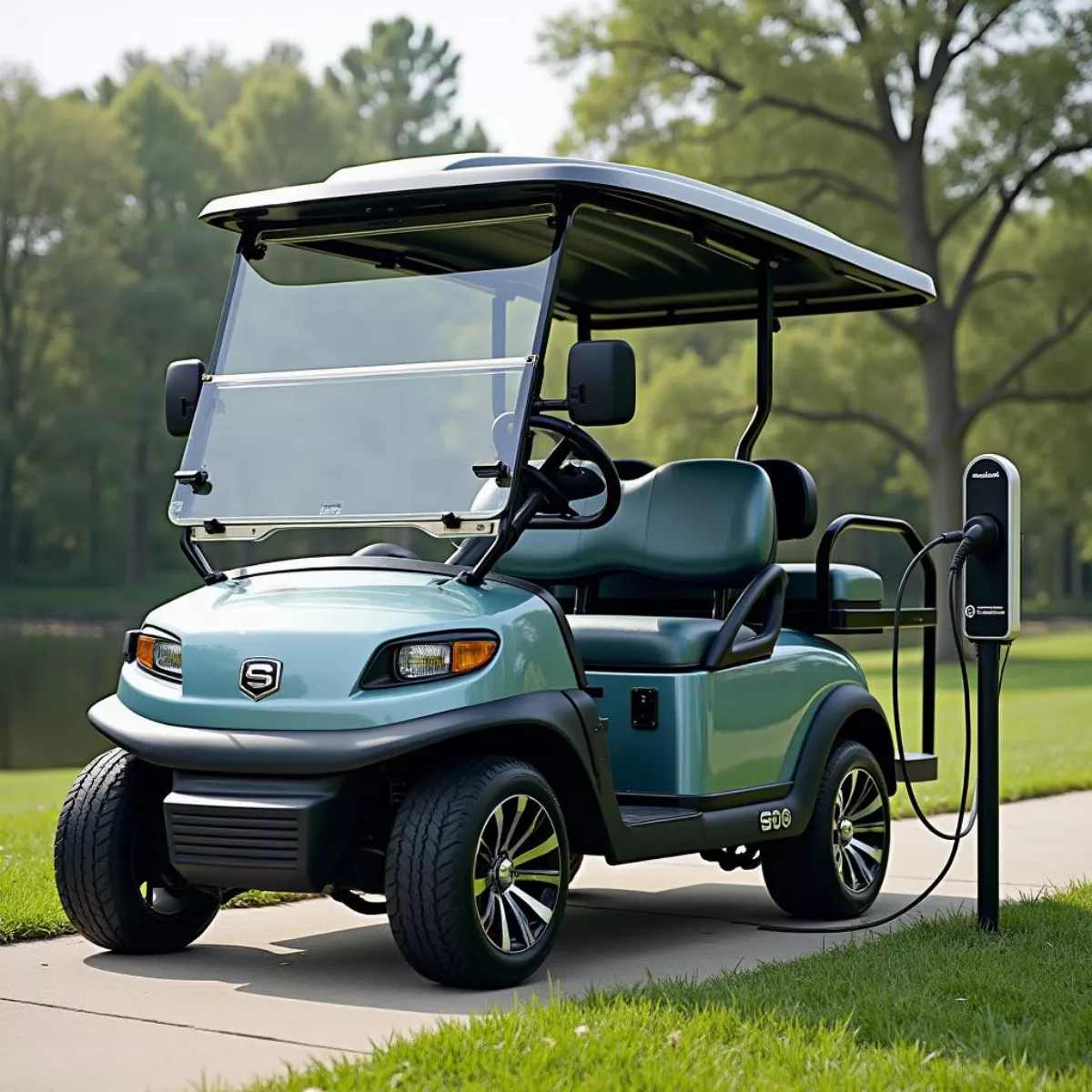When it comes to getting around golf courses, neighborhoods, or even large properties, golf carts are a popular choice. But with two main types on the market—gas golf carts and electric golf carts—it can be challenging to decide which is the best fit for your needs. In this guide, we’ll explore the pros and cons of each, provide some helpful tips, and answer frequently asked questions to help you make an informed decision.
Understanding Golf Cart Types
Gas Golf Carts
Gas golf carts are powered by combustion engines, similar to traditional automobiles. They typically run on gasoline and have a longer range because they can be easily refueled.
Pros of Gas Golf Carts:
- Longer Range: They can travel longer distances without needing a recharge.
- Quick Refueling: You can refill the gas tank in a matter of minutes.
- More Power: They’re often better for hilly terrains or for hauling heavier loads.
- Less Initial Cost: Generally, gas-powered carts tend to be cheaper upfront compared to electric ones.
Cons of Gas Golf Carts:
- Noise and Vibration: They can be loud and vibrate due to the engine.
- Emissions: Gas carts produce emissions that can be harmful to the environment.
- Maintenance Needs: Requires regular maintenance, such as oil changes and filter replacements.
Electric Golf Carts
Electric golf carts run on battery power and are charged through electric outlets, similar to electric vehicles (EVs).
Pros of Electric Golf Carts:
- Quiet Operation: They operate almost silently, making them ideal for golf courses and residential areas.
- Eco-Friendly: No emissions mean a smaller environmental footprint.
- Lower Maintenance Costs: Electric carts typically require less maintenance than gas-powered options.
- Torque: They offer immediate torque, making them powerful from a standstill.
Cons of Electric Golf Carts:
- Limited Range: Depending on the battery, they may not travel as far as gas carts.
- Charging Time: Charging can take several hours, which may be inconvenient.
- Dependence on Charging Infrastructure: Requires easy access to charging stations or outlets.
 Electric Golf Cart Charging at Station
Electric Golf Cart Charging at Station
Comparing Key Features
| Feature | Gas Golf Carts | Electric Golf Carts |
|---|---|---|
| Fuel Type | Gasoline | Electricity |
| Range | 100+ miles per tank | 20-50 miles per charge |
| Refueling/Charging Time | Minutes | Several hours |
| Noise Level | Loud | Quiet |
| Emissions | Yes | No |
| Maintenance | Higher | Lower |
| Upfront Cost | Lower | Higher |
Considerations for Your Purchase
When deciding between gas and electric golf carts, consider the following factors:
- Usage: Are you using it mainly for short rounds of golf, or do you need it for longer trips?
- Terrain: Are you frequently driving on hills or rough terrains?
- Environment: Do you prioritize environmental impact or prefer efficient utility?
- Budget: Consider both your upfront costs and ongoing expenses.
- Maintenance: Are you prepared for the maintenance requirements of a gas cart?
- Availability of Fueling/Charging: Consider the availability of gas stations or electric charging points in your area.
Real-Life Applications
- Golf Courses: Many golf courses lean toward electric carts due to their quiet operation and eco-friendliness.
- Communities: In residential areas, electric golf carts are a popular choice to minimize noise and emissions.
- Businesses: If you’re looking for utility around large properties, like farms or warehouses, a gas cart may be more suitable due to its power.
 Gas Golf Carts Used for Farm Work
Gas Golf Carts Used for Farm Work
Key Takeaways
Here’s a quick summary of what we covered about gas vs electric golf carts:
- Gas Carts:
- Better for long distances and hilly terrain.
- Quick refueling, but more maintenance.
- Noisy and produces emissions.
- Electric Carts:
- Eco-friendly and quieter operation.
- Lower maintenance costs, but limited range.
- Longer charging times and requires access to outlets.
In the end, your choice will depend on your specific needs, preferences, and lifestyle.
Frequently Asked Questions (FAQs)
1. How do I decide between a gas and an electric golf cart?
Consider your usage scenario, the terrain you’ll travel, maintenance preferences, and budget.
2. Can I convert an electric golf cart to gas?
There are kits available for conversions, but it could be costly and complex. It’s usually more practical to buy a new cart.
3. How often do I need to charge an electric golf cart?
Charging frequency depends on usage but generally after every round of golf or when the battery is nearing depletion.
4. Which type provides better performance on steep hills?
Gas golf carts usually have the advantage here due to their greater power output.
5. What is the typical lifespan of a golf cart battery?
Most batteries last between 4-6 years, depending on maintenance and usage.
6. Are there financing options available for golf carts?
Yes, many dealers offer financing options similar to car loans.
7. How much does maintenance differ for gas and electric golf carts?
Gas carts require regular oil changes and other engine maintenance, while electric carts mostly need battery checks and occasional tire maintenance.
 Golf Cart Maintenance Checkup
Golf Cart Maintenance Checkup
8. What is the average cost range for gas vs electric golf carts?
Gas carts typically range from $4,000 to $8,000, while electric carts can range from $8,000 to $12,000.
Conclusion
Choosing between gas golf carts and electric golf carts ultimately comes down to your individual needs and circumstances. Both types have their own merits and drawbacks. By considering factors such as range, noise level, maintenance, and cost, you’ll be better equipped to make a decision that fits your lifestyle. Now it’s time to hit the greens—enjoy the ride!
For further reading, check out our guides on golf cart maintenance tips and how to choose the best golf cart accessories!

